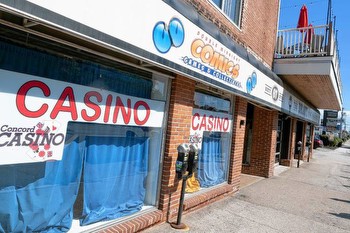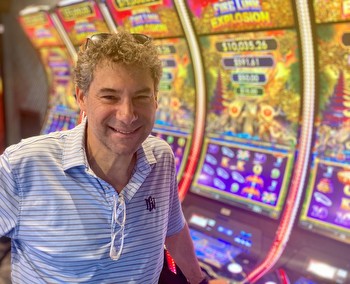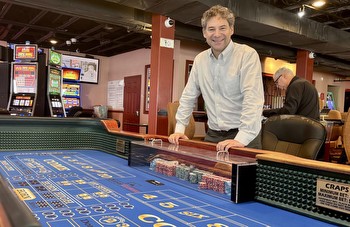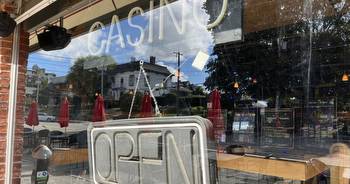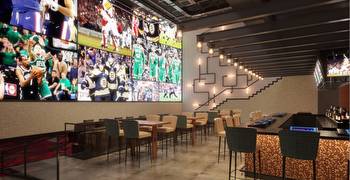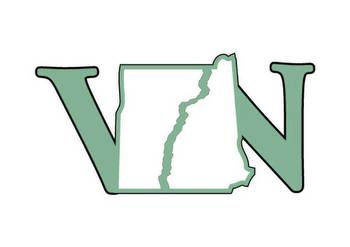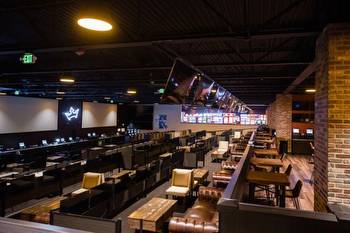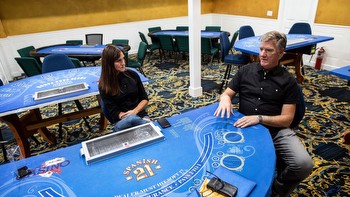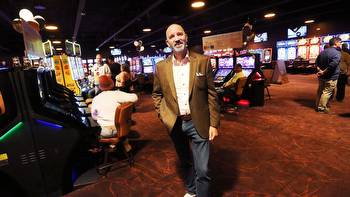Concord Casino compliance record is similar to (and unlike) NH peers

Concord Casino owner, former state Sen. Andy Sanborn, is scheduled to defend himself – and his casino license – Tuesday morning against allegations he used nearly $844,000 in federal pandemic money for race cars and other personal gains.
In that, Sanborn appears unique among owners of the state’s 14 casinos licensed to hold charitable games. He’s somewhat less so when it comes to compliance with New Hampshire Lottery rules and regulations, according to Lottery records.
For example, Lottery records show that the Concord Casino has been flagged for many of the same minor rule violations as the state’s largest casino, The Brook in Seabrook. But those records also show that Sanborn has been questioned by Lottery officials about the rent he charges charities. And he has received multiple warning letters about overdue financial reports and one for assigning winnings to the wrong charity, according to the records.
A Lottery spokesperson said Sanborn’s business operations will not be part of his hearing before the New Hampshire Lottery Commission, which is considering prohibiting Sanborn and his casino from holding a charitable gaming license indefinitely.
Instead, it will focus on Attorney General John Formella’s allegations that Sanborn fraudulently obtained $844,000 in federal pandemic aid, which he spent on at least three high-end race cars, car parts, and 27 years of prepaid rent for another business he owns.
Sanborn bought his wife, state Rep. Laurie Sanborn, a Bedford Republican, a Ferrari with some of the money, according to the Attorney General’s Office.
Formella said his office is investigating possible criminal charges against the Sanborns and has referred the case to the United States Attorney’s Office, District of New Hampshire for its review.
Still, Sanborn’s business practices at his casino have come into question, most prominently in reporting from the Concord Monitor and New Hampshire Public Radio. What’s been unclear is how Sanborn’s casino operation compares to that of his counterparts in New Hampshire.
The Bulletin requested compliance and investigative reports from the Lottery for Sanborn’s casino and two others for comparison: The Brook because it generates the most money for charities, and the Lakes Region Casino in Belmont, because its charity payouts are similar to Concord Casino’s.
In August the latter two each paid charities, which are supposed to collect 35 percent of gambling proceeds, about $35,000. The Brook paid charities about $394,000 that month, according to the Lottery website.
Lottery enforcement officials visit the 14 casinos it licenses at least monthly to ensure they are complying with gaming rules, handling money appropriately, and investigating customer complaints. While records for the Concord Casino, The Brook, and Lakes Region Casino include similar minor infractions, they also reveal stark differences.
For example, neither The Brook nor the Lakes Region Casino has received warning letters for overdue financial reports, questions about rental fees for charities, or notice for assigning one charity’s winnings to another. Here is what we found.
Lakes Region Casino
Between January 2022 and September 2023, the Lottery’s enforcement division visited or communicated with staff at the Lakes Region Casino nearly 25 times, according to records.
Just over half of those visits were for routine confirmations that the casino was operating charity games of chance correctly. In one case, casino staff asked a game inspector to review a floor plan for a casino redesign and whether they needed permission to bring in an outside trainer to help dealers “better their craft.”
One record noted that the casino did not have the bet limit posted at a blackjack game. On a few occasions, enforcement officers noted the casino’s security cameras were not clear enough or were not positioned in a way to clearly show the denominations of the money it collected and paid out.
The records contained a single complaint from a customer. The person reported in December 2022 that the casino had refused to pay out winnings from a poker game after the player with the highest hand left abruptly, without collecting any money. The complainant believed the person with the next-highest hand should have been paid.
The enforcement division determined that the casino rules stated that the winner needed to be present to collect the prize.
The records for the Lakes Region Casino contained no warning letters or enforcement actions.
The Brook
In that same time frame, Lottery officials communicated with staff at The Brook just over 70 times, according to the documents. The Brook also did not receive warning letters or enforcement action in that time span, according to the records.
The most frequent issue flagged by enforcement officers related to the casino’s handling of the cart holding money. On about half a dozen occasions, only one person was with the cart, not two as required, according to the documents. There was no indication in the records that the enforcement division suspected money was being mishandled.
Twice, casino officials contacted Lottery officials to report concerns about illegal activity by staff.
In June 2022, the casino reported that it suspected two dealers were colluding with a player to manipulate the outcome of the game, to the player’s advantage. The casino suspended the dealers during its internal investigation.
A Lottery investigator reviewed security footage and concluded that one dealer had clearly colluded with the player numerous times, according to the report. The investigator was less sure about the second dealer, saying he could not determine if the dealer was colluding with the player or being “extremely lackadaisical” in running the game.
The investigator concluded that the behavior of both had “undermined the public’s confidence in charitable gaming” and warranted suspension of their licenses.
In January, the casino staff contacted Lottery officials again, this time to report their suspicions that a poker dealer was stealing money by taking more in tips than allowed.
After reviewing security camera footage, a Lottery enforcement agent determined that “at a minimum” the dealer was careless in separating his tips from the wagers but “more likely” he was inflating his tips. The agent wrote that he was unable to determine how much money had been taken but concluded the conduct warranted revocation of the dealer’s license, according to the document.
Concord Casino
The Lottery provided records for Sanborn’s casino dating back to February 2020. In that time, the casino had contact with Lottery enforcement agents at least 35 times, the majority for routine compliance checks. In some cases, though, officials contacted Sanborn with concerns.
In August 2023, Lottery officials questioned why the casino charged some charities more in rent than others. Staff told enforcement officials they adjusted the rent according to revenues. According to rent payments obtained by NHPR, the fluctuating rental fees, which come out of the charities’ winnings, meant some charities received only 17.5 percent of proceeds, not the 35 percent called for in gaming rules.
But John Conforti, chief compliance officer for the New Hampshire Lottery Commission, said in an email that the Lottery has allowed adjustments in rent only when they favor a charity. “We would not allow an adjustment that was less favorable to the charity,” he wrote.
Conforti said no other casino makes rent adjustments. He said his office has not taken administrative action because doing so may result in an unfavorable outcome for the charities.
In April 2020 and February 2021, Lottery officials sent Sanborn letters of warning for failing to submit monthly financial reports for several charities. The Lottery gave Sanborn five days to submit the reports and 15 days to explain why they were late and how he would meet deadlines in the future.
Conforti said late financial warnings are not uncommon, although they are more common for Lucky 7 operators as opposed to those who run charitable gaming.
The documents do not indicate Sanborn faced enforcement action.
Sanborn received a warning letter in May 2022 after Lottery officials learned the casino had registered the wrong charity as a recipient of proceeds that month. Laurie Sanborn told Lottery officials she and Sanborn were on vacation and were addressing the error.
In November 2020, the record indicated that one of the charities the casino was working with did not hold a charitable gaming license. In the report, the enforcement agent noted that Laurie Sanborn appeared “genuinely unaware and concerned.”
Andy Sanborn did not return a request for comment.
This story was originally published by New Hampshire Bulletin










